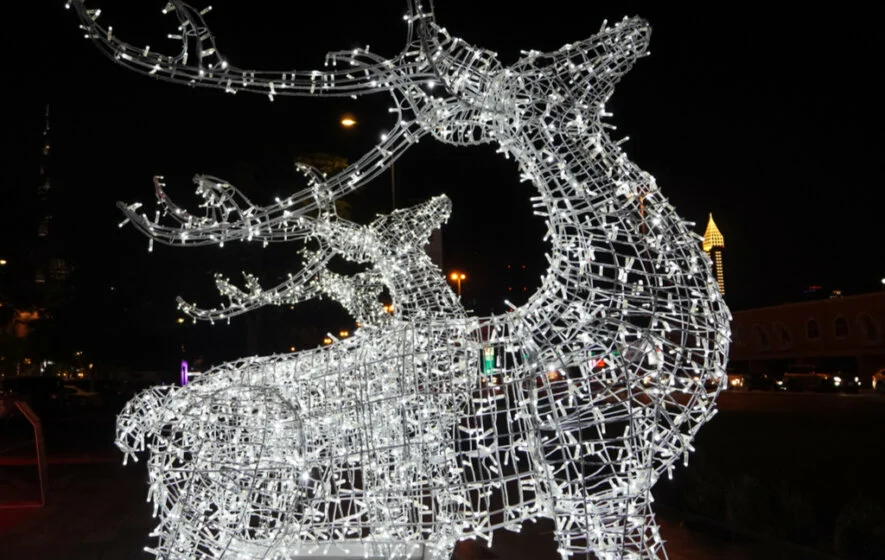Most offices are sat in the dark. Many assembly lines are at a standstill. And streets and railway stations are all but empty. Most people, at least in Christian countries, don’t have to work on Christmas Day and are able to spend the holidays at home with their loved ones.
This means that significantly less energy is consumed overall on public holidays, with electricity consumption clocking in at easily 30 percent below that of a normal working day.
But the flip side of people preferring to stay at home is that domestic energy demand increases enormously. During the cold winter months, houses and apartments are heated around the clock, Christmas dinners are roasted for hours on end and Christmas fairy lights give everything a festive glow. All things considered, we need a fair amount of energy to guarantee bit of Christmas cheer. In our (at times tongue in cheek) picture gallery, we have highlighted the biggest energy-guzzling culprits.
The en:former team bids farewell to 2019 and wishes you and your family a Merry Christmas and a Happy New Year. We thank you for your loyal readership during this eventful year for the energy industry. We will be back with many exciting articles and insightful reports in 2020. Until then, stay en:formed!
Photo credit: Yuganov Konstantin, shutterstock.com.









